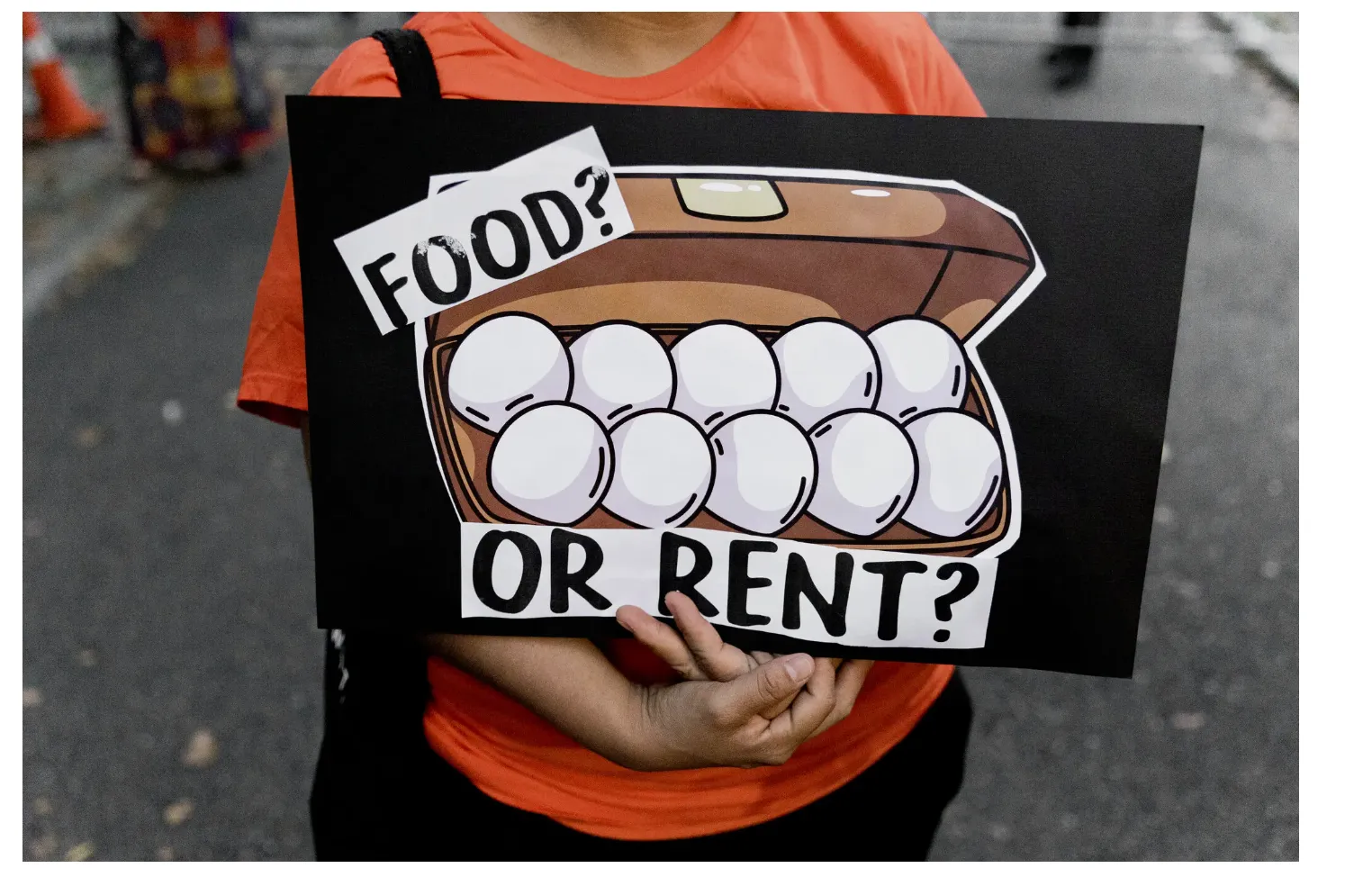Credit John Cochrane for a brilliant blast of rent controls.
A Way Out of the Affordability Crisis [Not]
Let’s start with an inane post on the New York Times Economists Hate This Idea. It Could Be a Way Out of the Affordability Crisis.
That’s a free link for those who wish to get nauseated. It’s by By Neale Mahoney and Bharat Ramamurti. Mr. Mahoney is an economist and Mr. Ramamurti is a former deputy director of the National Economic Council.
That post was the impetus for the excellent post by Cochrane on rent controls.
The amusing (or do I mean pathetic) thing about the NYT article is Mahoney and Ramamurti make the proper case against rent controls, then support them anyway on grounds they will be temporary.
Cochrane blasts the NYT article in his post, Price Control Apologia, which we will now discuss in detail.
Price Control Apologia
Prelude: In his post, Cochrane, notes “Mahoney is also the director of the Stanford Institute for Economic Policy Research, of which I am a part.”
It’s not often academics for the same institution blast each other. Even rarer is a blast of one’s boss and the organization too.
Cochrane sarcastically comments “when the boss writes a New York Times oped in favor of price and rent controls, that inevitably tells you something about the strategic direction of the organization.”
Indeed! And it also says something about the integrity of Cochrane who is willing to criticize his boss in a column.
I will leave out Cochrane’s point-by-point blast of Mahoney until the end. Mostly I just post the key ideas from his article.
Please consider Price Control Apologia by John H. Cochrane, The Grumpy Economist. Emphasis is mine.
A rent control is the same as a tax on landlords used to subsidize the rents of current tenants. You may picture a giant corporation, but many landlords are sympathetic individuals who worked hard and saved and use the apartment to fund their retirement.
A rent control only makes rental “affordable” for the lucky recipient. It does not make rental housing more “affordable” for society as a whole. It does not increase the number of people who have housing. Indeed it reduces that number. It just changes who gets it. It does not even make housing more “affordable” on average. For those who want it must now pay with time, and inconvenience, or pay by foregoing the great opportunities that moving to the city provided.
There is no blob of “government” money, or “policy” that can make something affordable for one without making something else less affordable for another.
Remove the barriers tomorrow — zoning, planning, density and height restrictions, dozens of separate permits, labor restrictions (unions, high minimum wages), and so on — and you could get actual new housing before the next presidential election.
Everyone is focused on building, but “supply” is so much more than building. There is tremendous supply in using more efficiently what we have now. Most cities have laws against renting parts of single family homes, or sharing larger homes. Think how many spare bedrooms are empty every night. There is plenty of housing supply in the US, it’s just not in places where people want to move. Others moving out is “supply,” and greatly impeded.
Older people stay in too-big houses and apartments, in locations close to work and school opportunities that young families desire, but the older people no longer need. Why? If they sell, they are taxed on capital gains, even just due to inflation. They lose property tax exemptions, and, of course, rent control protection. Each older person who cashes in, downsizes, or moves to a more neighborhood more suited to them, supplies a house or apartment.
The non-portable fixed rate 30 year mortgage, an invention of our federal housing subsidy regime, leads people to stay where they are rather than move to where they want to go, and free up a scarce house or condo for someone else.
Strong apparently “consumer protection” laws in rental contracts dry up the supply, especially to the marginalized. If you can’t kick people out, you’re much more careful who you let in. Limits on short term rentals limit rentals. Remove rent controls, permanently, and houses and condos can be rented. Many houses and apartments need rehab, not new construction, which can happen very quickly once owners know they will not be robbed of their investment. Even “affordable” housing leads people to stay where they are, rather than move to better opportunities for them and free up an apartment for someone else, because it’s rationed with long waiting lists.
When Javier Milei ended rent control in Buenos Aires, rent went down. Instantly. Nothing had to get built. It can happen in Manhattan.
Contra Mahoney and Ramamurti’s assertion that price or rent controls are alternative to demand subsidies, they are exactly the same thing as a tax on suppliers used to fund demand subsidies. With a fixed supply, the number of people who have houses is fixed. The only effect of rent controls or demand subsidies is to change who gets the houses.
New York put in “temporary” rent controls in WWII. 80 years ago. Congress passed “temporary” Obamacare subsidies during the pandemic, and we just shut down the government for a month and a half over that. “Rent caps on existing units” have been tried by every single failed rent control regime in history. Tax away the hard-earned investment of existing landlords. But apartments need maintenance and even the Times runs stories of apartments vacant in Brooklyn because it’s not worth it for landlords to fix them, since they were built before the last “existing unit” freeze in 1974. Plus, every investor knows that what can be done “just this once” can be done again. “Government investment in new housing?” California specializes in that, featuring $1 million one bedroom units for homeless people. Come tour the ruins of Chicago’s housing projects. And once again, just where is this endless pot of money? Let’s see, 3 million homes at $500,000 per home is $1,500,000,000,000 yes one point five trillion if I got my zeros right. Not exactly couch change on the government budget.
You must live in quite a bubble not to know about the trillions of “government investment” in solar panels and windmills we already have. California leads the way. And also has the highest gas and electric prices in the nation. And you must have forgotten a lot of economics to not recognize that “household budgets” also have to pay the taxes that pay for these “investments.” California’s electric utilities and refiners are barely scraping by, rather than being effective pots of tax money, so that “shielding” of some household’s budgets will come from other households.
This is politics, not policy, redistribution in the name of electoral gain, as Mahoney and Ramamurti make clear. There is no “policy.” There is politics. This is redistribution by force. For better or worse, but don’t sugar coat what you’re doing.
“Step in if there are signs of price controls becoming permanent or spreading to other parts of the market.” Hello? 80 years is not permanent enough? Are not “policymakers” like the new mayor of New York “stepping in” precisely to extend and expand controls? Sunset clauses are sunrise clauses. “Targeting controls to well-defined groups — such as existing tenants and low-income households.” After “budget constraint” lesson 2 of Econ 101 is “incentives.” When existing tenants get a big break, they have a big incentive to remain existing tenants, see above. When households experiencing low incomes (I refuse to use “low-income” as an immutable characteristic) receive benefits they have a big incentive to remain low income.
The final paragraph [From the NYT article]
In a cost-of-living crisis, the question isn’t whether to intervene, but how to do so in a way that delivers relief today without creating new problems tomorrow.
Why would two excellent economists pander in this way, selling obvious fantasies to justify price controls that have been tried since Diocletian (300AD) and failed every single time? Well
In New York, the democratic socialist Zohran Mamdani ran for mayor on a simple promise to “freeze the rent,”.. like it or not, voters are demanding short-term price relief, and temporary price controls may be the only viable way to provide it.
Apparently, when voters want something and politicians want to promise it, our jobs as economists is to offer somewhat fantastical “policy tools” to justify it.
A last thought. Mamdani, if he does follow through on his policies, will indeed make Manhattan much more “affordable.” Chase away all the wealthy people, all the businesses and business owners, and apartments will be cheap. Detroit is affordable too. Be careful what you wish for, you just might get it.
Well Done Grumpy Economist
Thanks for blasting your boss in public. He deserved it.
One small correction: Regarding “Why would two excellent economists pander in this way, selling obvious fantasies to justify price controls that have been tried since Diocletian (300AD) and failed every single time?”
Why?
Could it be they are partisan hacks, not excellent economists?
It’s hard to call your boss a partisan fool in public, but Cochrane’s scathing rebuttal suggests that without saying it.
Meanwhile ….
Trump Proposes 50-Year Government-Backed Mortgages
FHA head, Bill Pulte said the proposal is a “complete game changer.” Yeah right.
Pulte is heir to homebuilder PulteHomes. Gee, does anyone spot the obvious conflict of interest problem?
Mish Alternate Proposal
The first thing I would do is fire Pulte.
More importantly, I would end the the FHA, HUD, Fannie Mae, and Freddie Mac.
Every one of those agencies increased demand for houses and thus prices. We need less interference by government not more.
On November 10, I commented Trump Proposes 50-Year Government-Backed Mortgages, I Propose Something Else
Government has no business in the home ownership business.
50-year mortgage would be another trap that will lock people in their homes, likely underwater on their mortgage if there is any serious decline in home prices, which I expect.
Please click the above link for comparison of interest paid on 15, 30, and 50-year mortgages over time.
This post originated on MishTalk.Com
Thanks for Tuning In!
Mish







